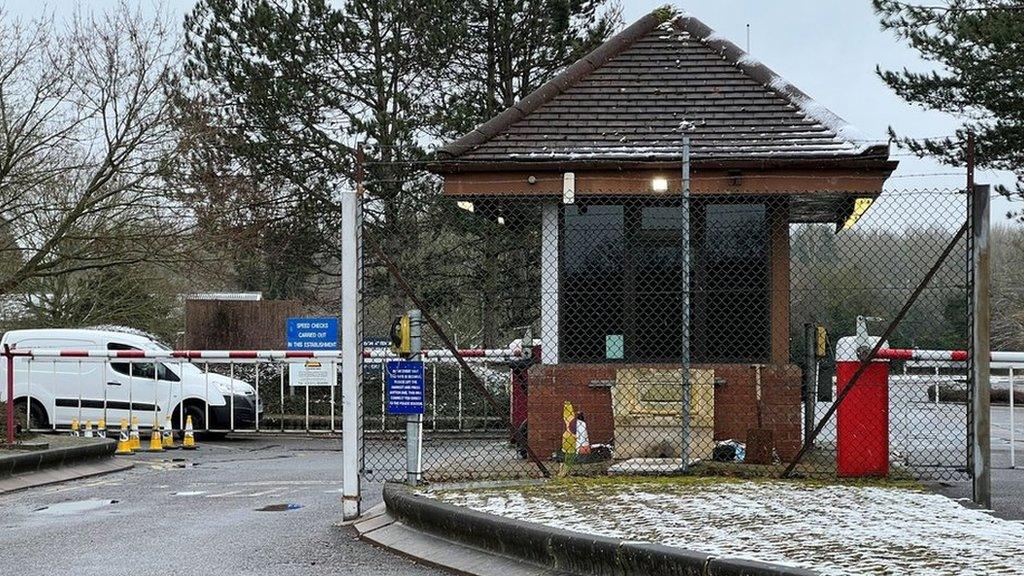Lorries get stuck in Sible Hedingham on way to proposed asylum centre
- Published
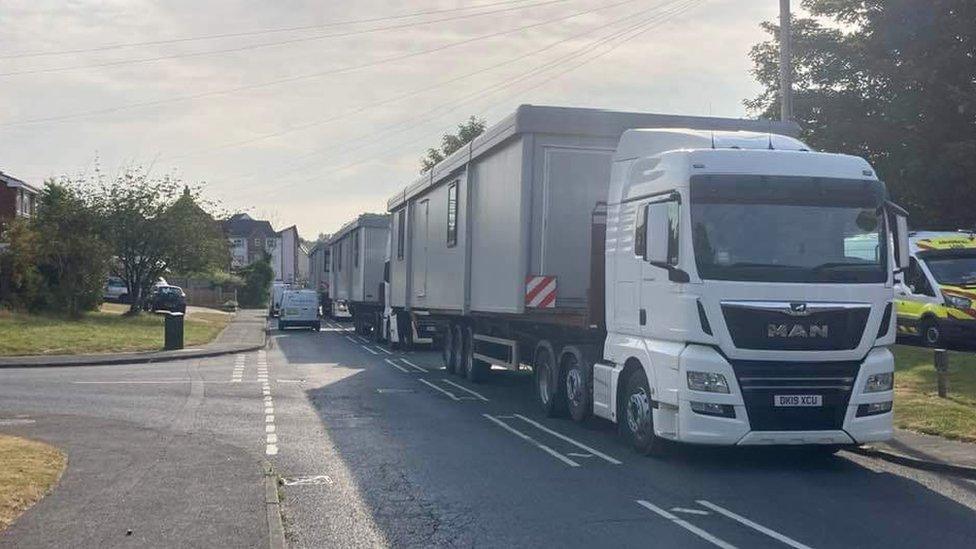
The lorry drivers realised there was a pinch point coming up in Sible Hedingham that they could not negotiate
Three lorries carrying portable buildings believed to be headed for a proposed asylum centre got stuck in an Essex village for about five hours.
The vehicles could not pass through a pinch point at Sible Hedingham between about 07:30 and 13:30 BST.
Residents were told the structures were bound for MDP Wethersfield, where the Home Office wants to accommodate 1,700 adult male migrants.
It showed the area was "inappropriate" for such an operation, a resident said.
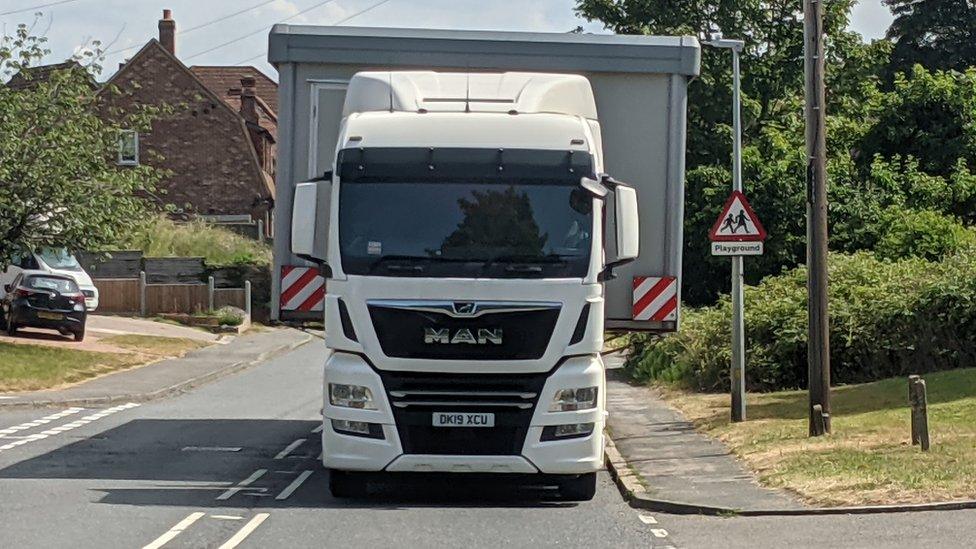
Alan MacKenzie, chair of The Fields Association, said the structures were "poking out quite some distance" from the lorries they were on
Alan MacKenzie, chair of The Fields Association, a group which has campaigned against the use of rural north Essex for government developments, said one of the lorry drivers said the structures were part of a proposed health centre and office space for the asylum centre.
They were about 4.2m (13.7ft) wide and "poking out quite some distance" from the lorries they were on, he said.
The drivers realised there was a pinch point coming up that they could not negotiate.
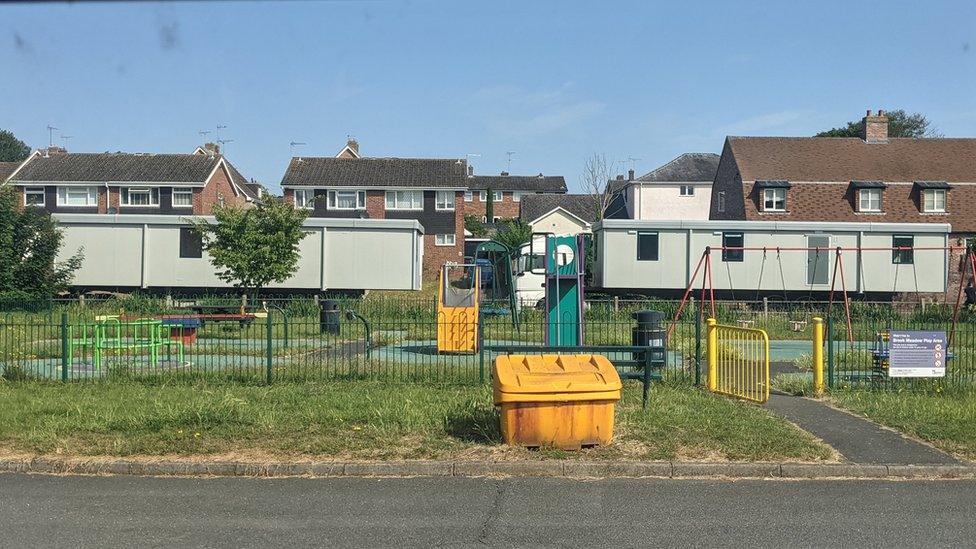
All the lorries stopped to "await instructions"
Mr MacKenzie said they "might have just got through" if the road was cleared of parked cars but it "would be tight".
He added that police officers asked residents to move their cars but then other residents started to park vehicles there to "make a point" and all the lorries were stopped in Rectory Lane to "await instructions".
Eventually they reversed and have now gone.
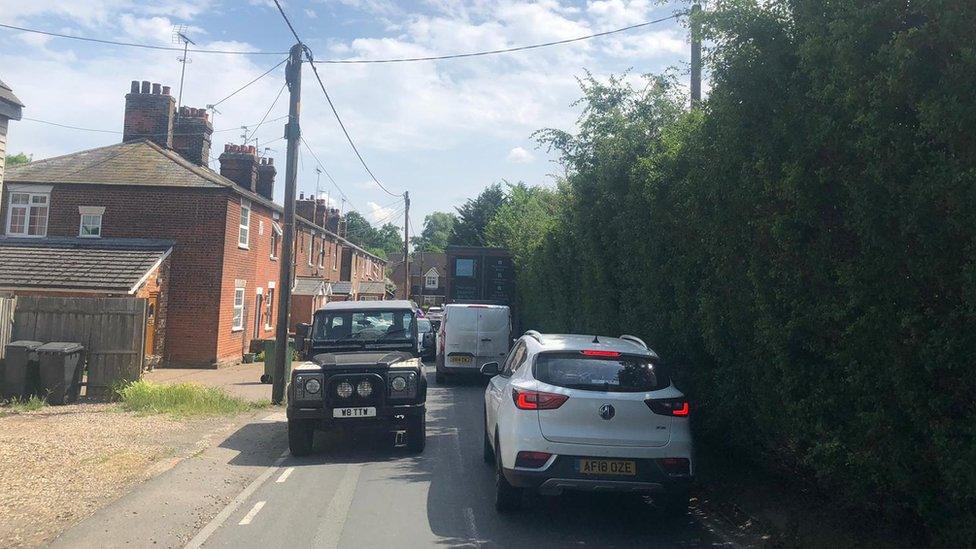
Residents said there was "gridlock" before the Hedingham Omnibus garage
"It is a medieval road network full of B roads and unclassified roads which are narrow and all terrible for getting wide loads through," Mr MacKenzie said.
"The situation has just demonstrated what local residents have been saying to the government about the road system here.
"It shows it is inappropriate trying to put a very large operation on a remote airbase, the infrastructure round here cannot support such a large asylum centre."
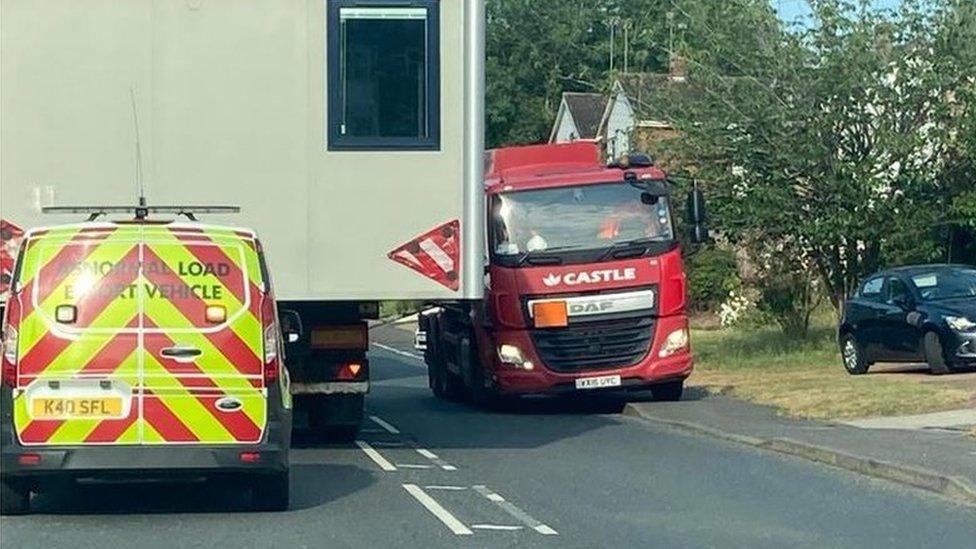
The Fields Association said roads in the area are "narrow and all terrible for getting wide loads through"
The Home Office said it would be opening a site at Wethersfield, with the first migrants moving in from this summer and would be using modular accommodation to house them as they await a decision on their claim.
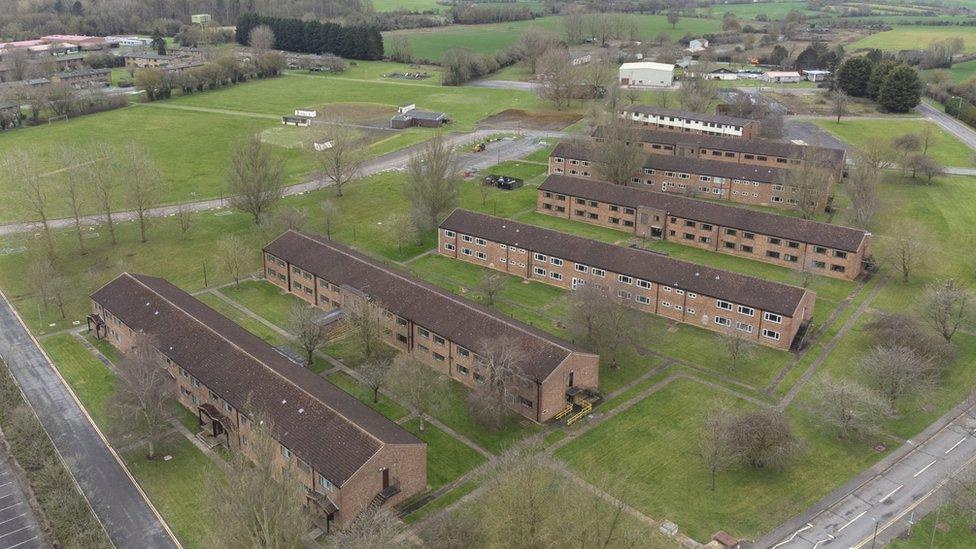
MDP Wethersfield in Essex is located about 10 miles from the nearest big town of Braintree
A spokesman said: "Delivering accommodation on surplus military sites will provide cheaper and more orderly, suitable accommodation for those arriving in small boats whilst helping to reduce the use of hotels.
"We are continuing to work extremely closely with local councils, the local NHS and police services, to manage any impact and address the local communities concerns, including through substantial financial support."

Follow East of England news on Facebook, external, Instagram, external and Twitter, external. Got a story? Email eastofenglandnews@bbc.co.uk , externalor WhatsApp on 0800 169 1830
- Published12 June 2023
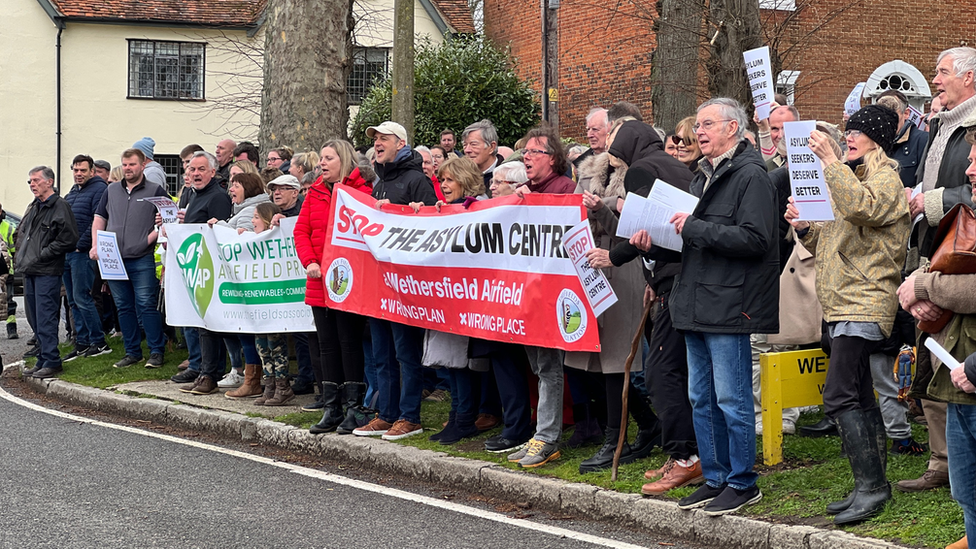
- Published13 December 2023
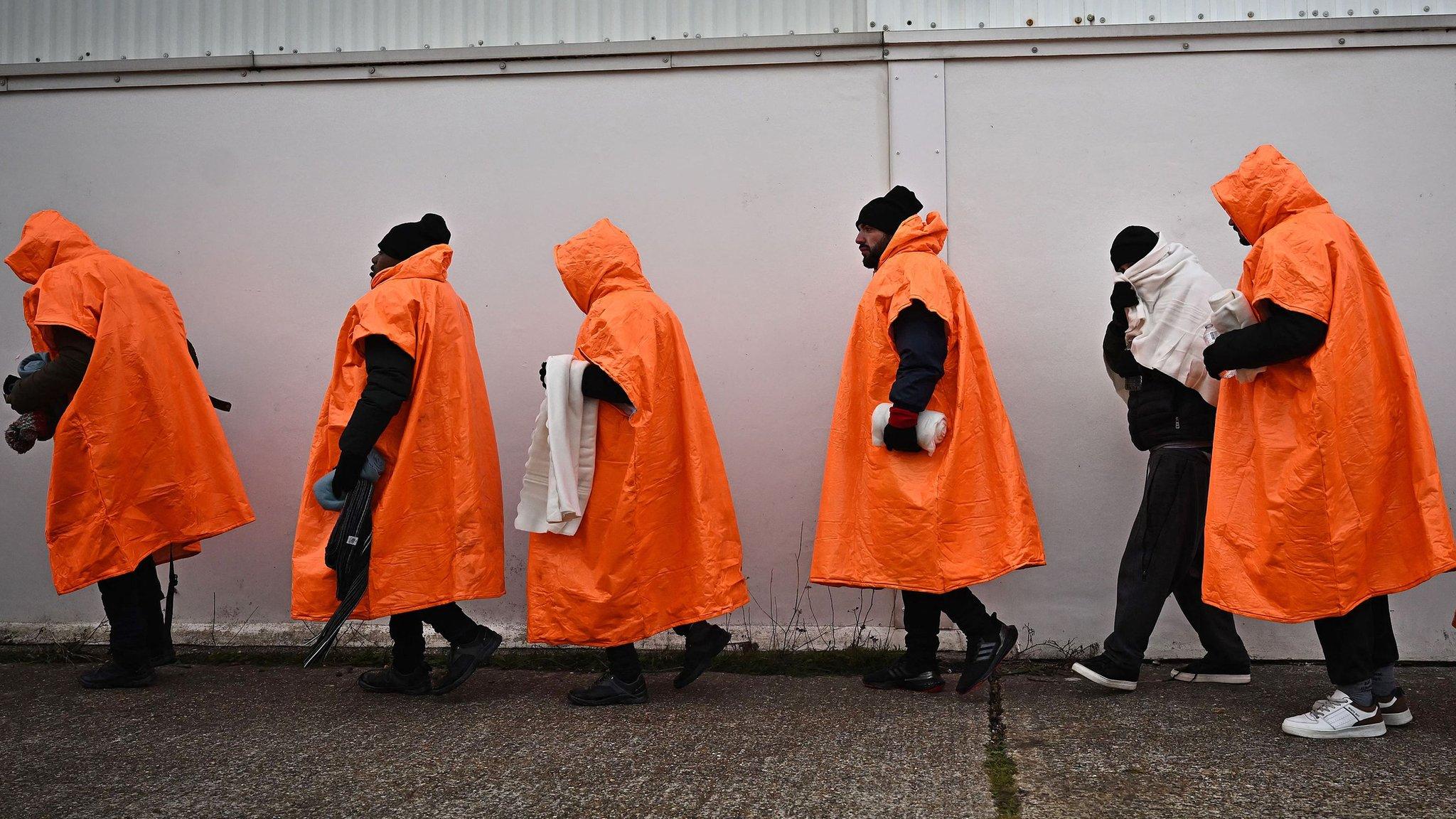
- Published28 April 2023
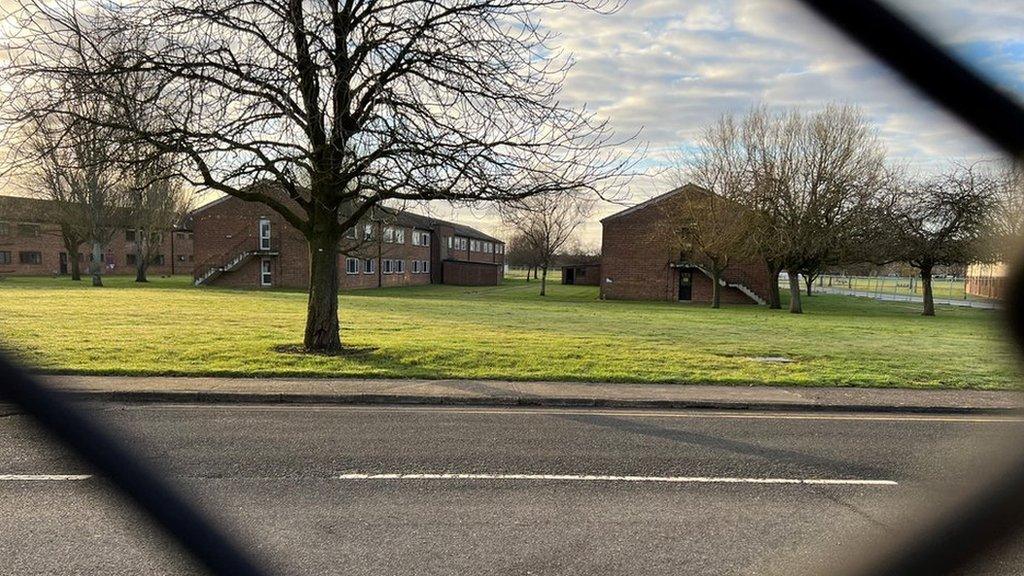
- Published21 April 2023
